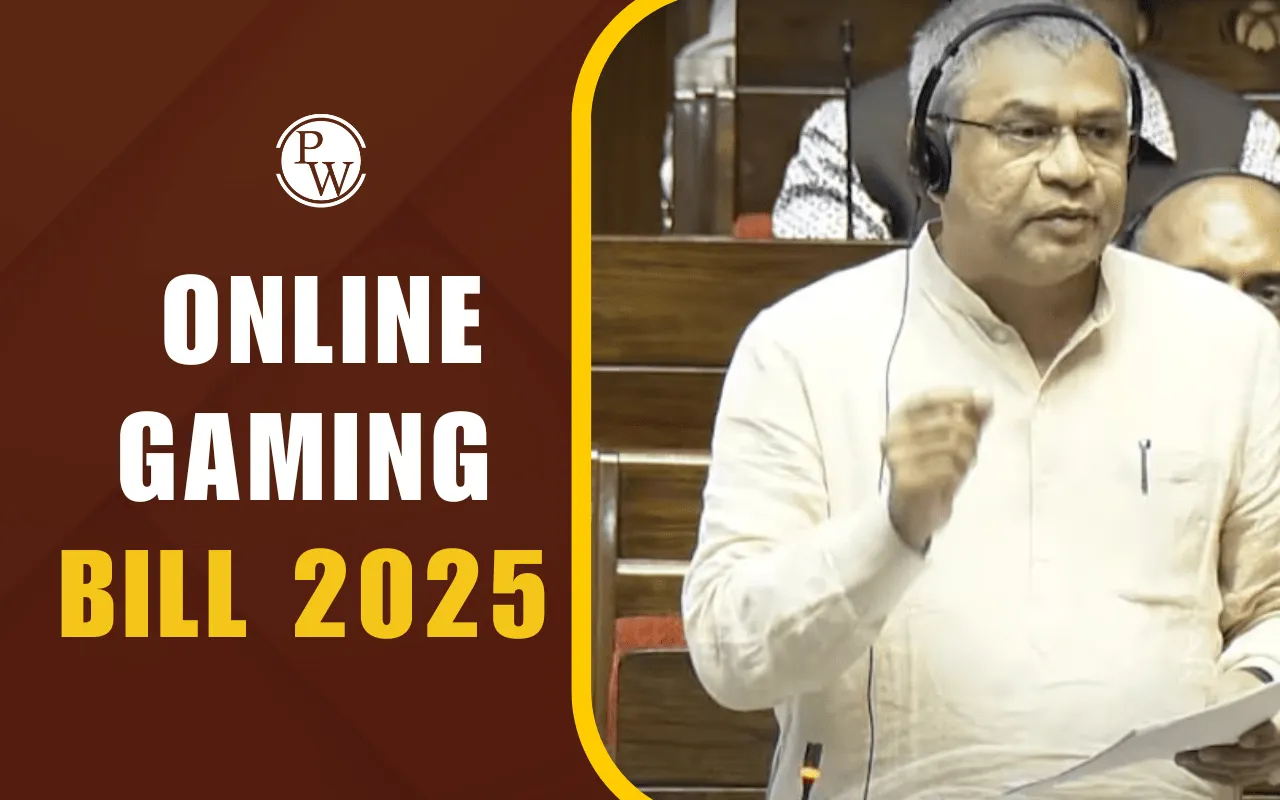
Online Gaming Bill: The Online Gaming Bill was passed by the Parliament on 21st August 2025. It is a major step to protect citizens from the dangers of online money games. At the same time, it promotes e-sports and safe social games. The law aims to strike a balance between safety and growth in the digital gaming sector.
Source - PIB
The Online Gaming Bill 2025, which was passed by the Union Cabinet, chaired by Prime Minister Narendra Modi on Tuesday, focuses on controlling harmful money gaming platforms while giving space for safe e-sports and educational games. It was introduced to stop gambling-based digital activities that create addiction and financial ruin. At the same time, the Bill promotes constructive digital growth through innovation, safe entertainment, and global competitiveness.
The Online Gaming Bill in Lok Sabha was needed because real-money games caused addiction, fraud, and mental health issues. Many users lost money through deceptive platforms, with some facing severe distress.
The Bill treats players as victims, not offenders. It focuses on penalising promoters, advertisers, and financial enablers of illegal gaming. At the same time, it supports safe online games and e-sports while shutting down gambling disguised as gaming.
The Online Gaming Bill applies across India, even to platforms operating from outside the country. Some of its main provisions are:
Promotion of E-sports: E-sports are recognised as legitimate sports. The Ministry of Youth Affairs and Sports will issue guidelines and set up academies and research centres.
Promotion of Social and Educational Games: Safe and age-appropriate games will be encouraged. Games that support education, culture, and skills will get government recognition.
Ban on Online Money Games: Games involving financial stakes are banned. This includes games of chance and skill. Promotion, advertising, and financial transactions linked to them are also prohibited.
Online Gaming Authority: A national authority will regulate the sector. It will categorise games, register them, and handle complaints.
Strict Penalties: Offering or promoting online money games can lead to imprisonment and heavy fines. Repeat offenders face tougher punishments.
The Online Gaming Bill lays down strict restrictions on real-money gaming. It prohibits:
| Penalties Under the Online Gaming Bill | |
| Offence | Punishment |
| Running illegal online money games | Jail up to 3 years and/or fine up to ₹1 crore |
| Advertising or promoting such platforms | Jail up to 2 years and/or fine up to ₹50 lakh |
| Handling financial transactions linked to betting | Jail up to 3 years and/or fine up to ₹1 crore |
| Repeat violations | Jail from 3–5 years, along with higher fines |
Along with the Online Gaming Bill, the Government has taken other steps to reduce the risks of online gaming. These measures include legal restrictions, advisories, and awareness campaigns.
| Supporting Measures Linked to the Online Gaming Bill 2025 | |
| Law / Initiative | Key Provisions |
| IT Act, 2000 | Illegal betting and gambling websites are blocked. Online platforms must follow intermediary rules. |
| Bharatiya Nyaya Sanhita, 2023 | Prescribes punishment for unauthorised betting and gambling. Imprisonment of 1 to 7 years, along with fines. |
| GST Act, 2017 | Offshore gaming platforms must register under the Simplified Registration Scheme. Non-compliant platforms face blocking. |
| Advisories by Ministries | Media, advertisers, and influencers have been warned against promoting betting platforms. |
| Ministry of Education Guidelines | Issued safe gaming practices for parents and teachers to protect children. |
